
As 2020 Fades To Black, We Say Goodbye

David Stern, who during a 30-year run as commissioner of the National Basketball Association masterminded its transformation from a league in peril to a multibillion-dollar industry and the first American sports league to thrive internationally, died on Jan. 1. He was 77.
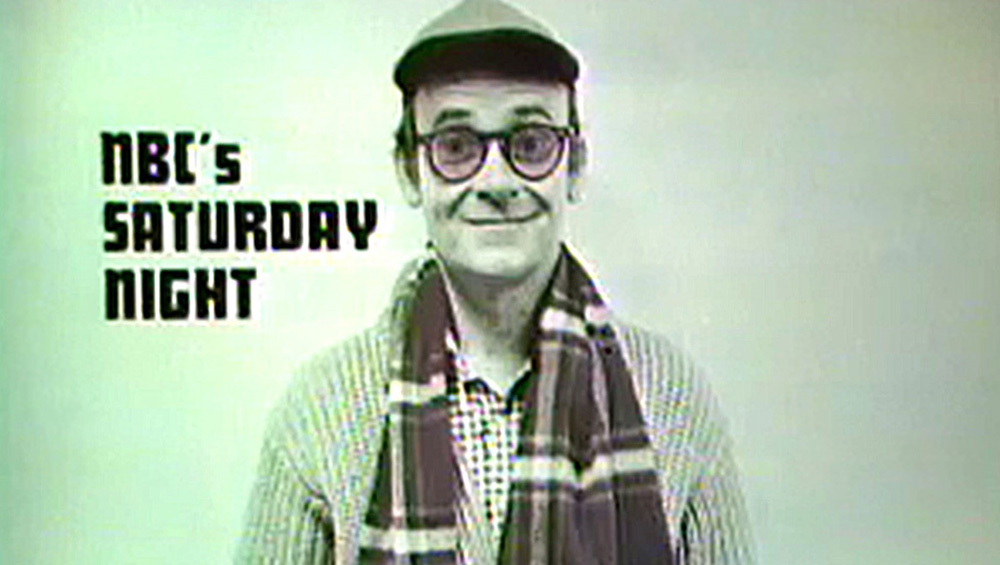 Buck Henry, the legendary screenwriter behind The Graduate and What’s Up, Doc? who also co-created Get Smart and was a regular presence in the early years of Saturday Night Live, died Jan. 8. He was 89.
Buck Henry, the legendary screenwriter behind The Graduate and What’s Up, Doc? who also co-created Get Smart and was a regular presence in the early years of Saturday Night Live, died Jan. 8. He was 89.
Harry Burson, who over five decades became one of the nation’s most celebrated P.R. men, died Jan. 10. The founder of the giant Burson-Marsteller agency broke ground not only by enhancing corporate images but also by helping clients soften the blows of potentially ruinous crises. Burson, who was hailed by the industry publication PRWeek in 1999 as the most influential PR person of the 20th century, and whose standards gave a luster of respectability to a business often seen as a confraternity of spin doctors, was 98.
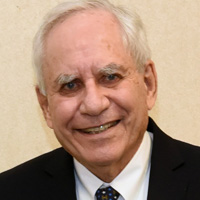
Joel Chaseman
Joel Chaseman, a broadcasting executive who became chairman and chief executive of The Washington Post Co.’s broadcasting subsidiary, Post-Newsweek Stations Inc., died Jan. 11. Chaseman, who had risen through the broadcasting ranks from news to program syndication, had been president of the Westinghouse Television Station Group when he left New York in 1973 to take the same title at Post-Newsweek Stations.
Theodore Holton Walworth Jr., former president of NBC’s owned stations, died Jan. 16 at 95. He was VP and general manager of WNBC New York throughout the 1960s, and then president of the NBC group for most of the ’70s.
Sheldon Cooper’s distinguished career started in the early days of television. He left a lasting impression on Chicago broadcasting as general manager of WGN-TV and founding president of Tribune Entertainment. He died Jan. 19 at age 93.
Glenn Serafin, a former Associated Press executive, who founded Serafin Bros. in 1993 to facilitate the buying, selling or financing of radio and television stations, died Jan. 20. He was 69.
Terry Jones, who with Eric Idle, John Cleese, Michael Palin, Graham Chapman and Terry Gilliam, formed Monty Python’s Flying Circus, whose anarchic humor helped revolutionize British — and U.S. — comedy, died Jan 21 at age 77.

Jim Lehrer
Jim Lehrer, longtime host of the nightly PBS NewsHour whose serious, sober demeanor made him the choice to moderate 11 presidential debates between 1988 and 2012, died, Jan. 23. He was 85. For Lehrer, and for his friend and longtime partner Robert MacNeil, broadcast journalism was a service, with public understanding of events and issues its primary goal.
Joyce Gordon was a television trailblazer for women. According to the Screen Actors Guild, she broke ground in 1966 as the first woman to head a local unit of the union when she was elected president of the New York branch in 1966. She was the first woman to serve as an announcer on a network TV broadcast of a national political convention, in 1980 on ABC, and the first to do on-air promotions for a network, plugging news and sports programs on NBC for four decades. She died Feb. 28 at 90.
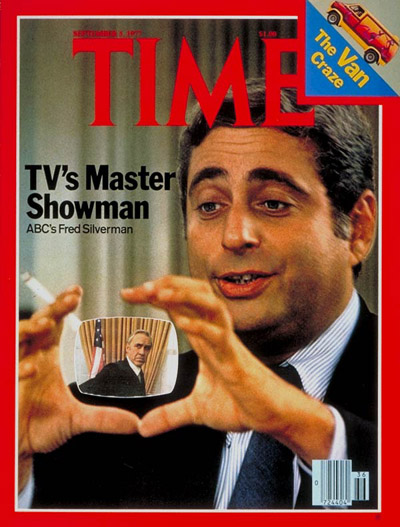 Fred Silverman, the visionary television producer and executive behind such hit shows as All in the Family, Soap, M*A*S*H and Hill Street Blues, and the first and only executive to creatively run CBS, ABC and NBC, died Jan. 30. He was 82. Silverman’s uncanny ability not just to identify hit shows in the making but also to program them into memorable primetime nights led Time magazine to crown him “The Man with the Golden Gut.”
Fred Silverman, the visionary television producer and executive behind such hit shows as All in the Family, Soap, M*A*S*H and Hill Street Blues, and the first and only executive to creatively run CBS, ABC and NBC, died Jan. 30. He was 82. Silverman’s uncanny ability not just to identify hit shows in the making but also to program them into memorable primetime nights led Time magazine to crown him “The Man with the Golden Gut.”
Six-time Emmy winner Gene Reynolds, known for his writing, directing and producing for the lauded socially conscious 1970s TV shows M*A*S*H and Lou Grant, died Feb. 3. He was 96.
Robert Conrad, the rugged, contentious actor who starred in the hugely popular 1960s television series Hawaiian Eye and The Wild, Wild West, died Feb. 8 at age 84.
Sy Sperling, the founder of Hair Club for Men, was a frequent face on late night and weekend television beginning in the 1980s, with his impact on popular culture felt well into the first decade of the current century. For almost 20 years, he starred in his company’s commercials, pitching services and information for balding men with an authenticity — and awkwardness — that could never be mistaken for acting. He died Feb. 19 at age 78.
Jack Welch became one of the nation’s most well-known and highly regarded corporate leaders during his two decades as GE’s chairman and chief executive, from 1981 to 2001. It was on his watch that GE purchased RCA and NBC. He personified the so-called “cult of the CEO” during the late-1990s boom, when GE’s soaring stock price made it the most valuable company in the world. He died March 1 at 84.
James Lipton, the elegant, articulate wordsmith and theater academic whose desire to give his acting students a greater insight into their art led to the popular Bravo series Inside the Actors Studio, died March 2. He was 93.
Lyle Waggoner, the actor with the leading man looks who spent seven seasons on The Carol Burnett Show before portraying versions of Steve Trevor a generation apart on Wonder Woman, died on March 17. He was 84.
Thomas Miller, a hit-making TV producer whose portfolio included Happy Days, Laverne & Shirley and Full House, died April 5 at age 79.
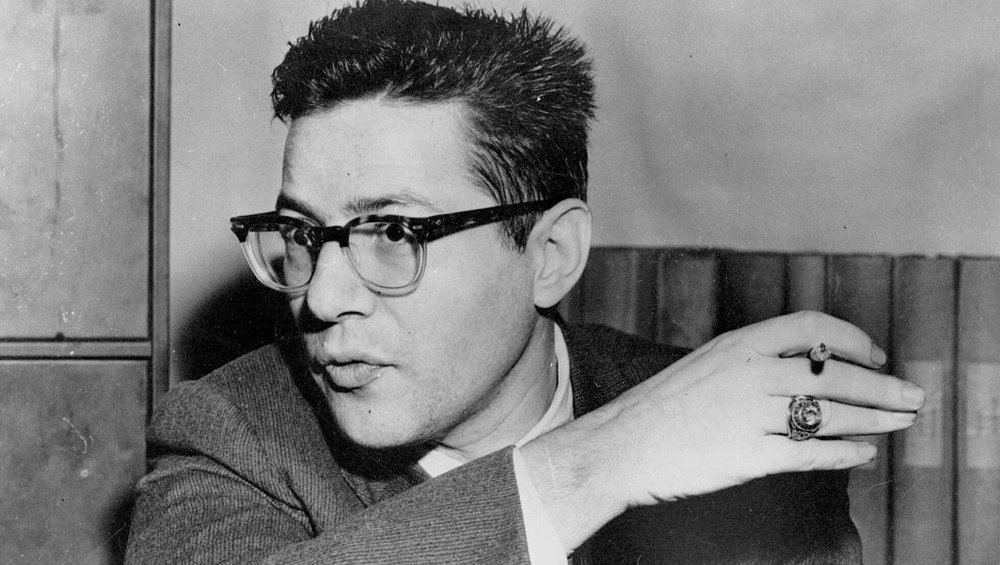
Herbert Stempel
Herbert Stempel, the Bronx-born brainiac who became a central figure and whistleblower in the game show rigging scandals of the 1950s, a cultural turning point later chronicled in the 1994 movie Quiz Show, died April 7. He was 93.
Former CBS chief communications executive, novelist and humorist Gil Schwartz died May 2 at the age of 68. Schwartz retired as senior EVP and chief communications officer of CBS Corp., in November 2018 following nearly 40 years at CBS, Viacom and Westinghouse Broadcasting.
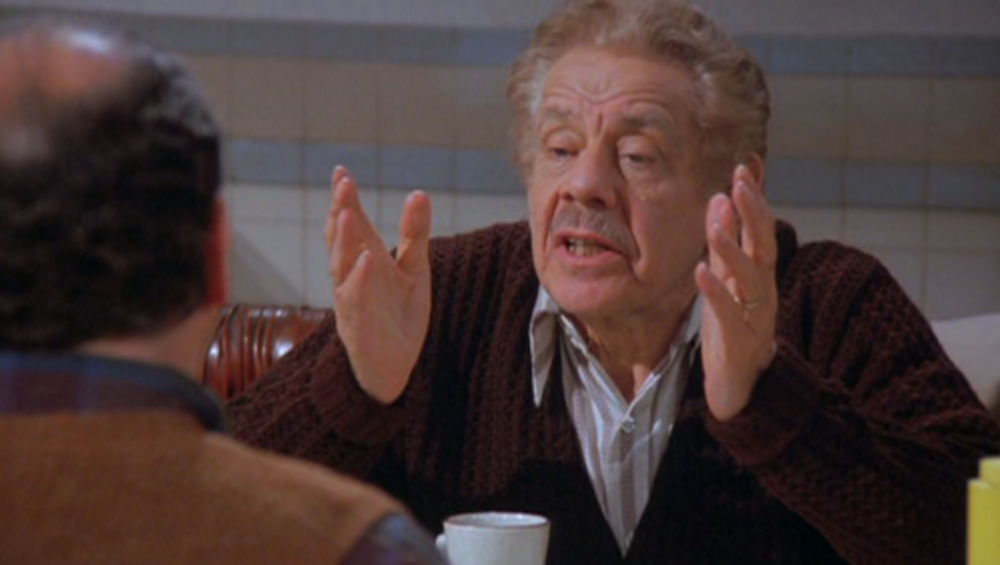
Jerry Stiller
TV and comedy legend Jerry Stiller was a multi-talented performer who appeared in an assortment of movies and then was brilliantly cast as Frank Costanza on Seinfeld. Although a supporting player on Seinfeld, he created some of the Emmy-winning show’s most enduring moments: co-creator and model for the “bro,” a brassiere for men; a Korean War cook who inflicted food poisoning on his entire unit; an ever-simmering salesman controlling his explosive temper with the shouted mantra, “Serenity now!” He was 92 when he died on May 11.
TV and film comedian Fred Willard, a four-time Emmy nominee for his roles in What’s Hot, What’s Not, Everybody Loves Raymond, Modern Family and The Bold and the Beautiful, died May 16. He was 86.
Phyllis George, the former Miss America who became a female sportscasting pioneer on CBS’s “The NFL Today” and served as the first lady of Kentucky, died May 14. George joined Brent Musburger and Irv Cross in 1975 on The NFL Today. Jimmy “The Greek” Snyder later was added to the cast. She spent three seasons on the live pregame show, returned in 1980 and left in 1983, winning plaudits for her warmth of her interviews with star athletes. She also covered horse racing, hosted the entertainment show People and co-anchored the CBS Morning News. She was 70.
Ken Osmond, an actor best known for his role as the troublemaker Eddie Haskell on the iconic TV comedy Leave It to Beaver, died on May 18. He was 76.
Longtime broadcast news executive William J. Small, who led CBS News’ Washington coverage during the civil rights movement, Vietnam War and Watergate and was later president of NBC News and United Press International, died May 24. During a six-decade career at CBS and NBC, Small supervised, guided and in some cases hired generations of some of the best-known reporters and anchors in television news, among them: Dan Rather, Eric Sevareid, Daniel Schorr, Connie Chung, Diane Sawyer, 60 Minutes correspondents Ed Bradley and Lesley Stahl and Face the Nation anchor Bob Schieffer. He was 93.
Mike Gravino, managing director of the Next Gen TV Coalition and executive director of the LPTV Spectrum Rights Coalition, died May 30. He was 69. FCC Chairman Ajit Pai called Gravino “a strong advocate for low-power TV stations across the country,” and said “he always began and ended every meeting with me with a smile.”
Robert Thomas “Bob” Sutton, a programmer and broadcast TV executive who then transitioned to such cable networks as Home Shopping Network and Golf Channel, died on June 7 at age 80.
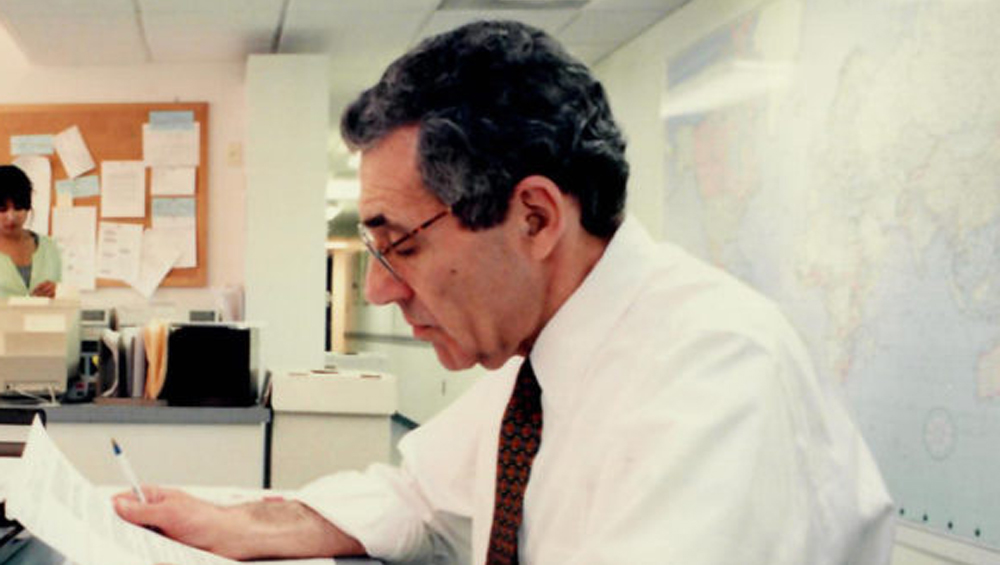
Les Crystal
Les Crystal, who was president of NBC News in the late 1970s before serving for more than two decades as the executive producer of PBS’s NewsHour, died June 24. He served as executive producer of NBC Nightly News from 1973 to 1976, and president of the network news division from 1977 to 1979. Crystal joined NewsHour in 1983 and stepped down as executive producer of NewsHour in 2005 but remained at MacNeil/Lehrer Productions until 2010. He then served several years as a consultant. He was 85.
Edwin T. Vane, a longtime television executive at NBC, ABC and Group W Productions, died June 26. He was 93. He had a hand in launching such shows as Jeopardy, Let’s Make a Deal and Good Morning America.
TV, Hollywood legend Carl Reiner was one of show business’ best liked men. The tall, bald Reiner was a welcome face on the small and silver screens, in Caesar’s 1950s troupe, as the snarling, toupee-wearing Alan Brady of The Dick Van Dyke Show and in such films as The Russians Are Coming, the Russians Are Coming and It’s a Mad, Mad, Mad, Mad World. The father of actor and director Rob Reiner, Carl Reiner was 98 when he died on June 29.

Hugh Downs
Hugh Downs, whose honeyed delivery and low-key but erudite manner helped make him a familiar face and voice on television for half a century, and whose career included long stints as host of both Today on NBC and 20/20 on ABC, died July 1. He was 99. For many years he held the Guinness-certified record for most total hours on commercial network television. His television career began in the medium’s earliest days, when he was already a radio veteran. His smooth baritone was heard on shows like Kukla, Fran and Ollie, Caesar’s Hour and, most notably, The Tonight Show, where he was cast as host Jack Paar’s foil. He was also host of the popular daytime game show Concentration, a job he held from 1958 until 1969. And in 1962 he began his most high-profile and prestigious assignment to date, the one that would establish him as not just an announcer but also a respected television journalist: host of Today. He remained there for a decade.
Cable TV pioneer J.C. Sparkman spent three decades as chief operations officer of Tele-Communications Inc., which was ultimately bought by AT&T for $48 billion. He was 87 when he died on July 16.

Regis Philbin and Kathie Lee Gifford appear on Today.
Regis Philbin, one of daytime television’s longest-running hosts, died July 24 at age 88. After hustling into an entertainment career by parking cars at a Los Angeles TV station, Philbin logged more than 15,000 hours on the air, earning him recognition in the Guinness Book of World Records for the most broadcast hours logged by a TV personality, a record previously held by Hugh Downs (who also died this year, see above).
Ed Ansin, who shook up Boston television with flashy graphics and a breaking news style that has become the norm, died July 26 at 84. His Sunbeam Television owns WHDH-WLVI in Boston and WSVN Miami. WHDH became independent after NBC pulled its affiliation after 22 years in 2017. To counteract the loss of network programming, Ansin decided to double down on local news and added staff to WHDH to ensure it would remain competitive as an independent.
Maurice “Reese” Schonfeld, who helped launch the cable news era as the first president of CNN, died July 28. He was 88. A brash newsman from Newark, N.J., he teamed up with Ted Turner in 1979 to create Cable News Network, which launched on June 1, 1980.
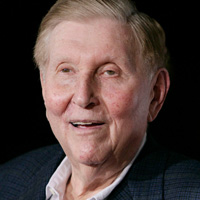
Sumner Redstone
Sumner Redstone started with a string of drive-in movie theaters and became the main architect of ViacomCBS, the media giant that includes the CBS broadcast network, the cable channels Showtime and MTV, and the Paramount film studio. He embodied the impolite era of the media mogul, a time before streaming, when movie theaters and cable TV were all the rage. He died Aug. 11 at age 97.
W. Russell Barry, a former president of 20th Century Fox Television and chairman of Turner Program Services, died Aug. 26 at age 84. He oversaw shows like M*A*S*Hand Dinah!and brokered the deal to put CNN in airports and hotels.
Paul Kagan, who built his expertise in the budding cable television business into the longtime media consulting business Kagan & Associates, died Aug. 23. He founded Paul Kagan Associates in 1969, publishing the first newsletter on the subject, and becoming the first analyst to publish public company valuations based on multiples of cash flow and computations of the private value of public media companies.
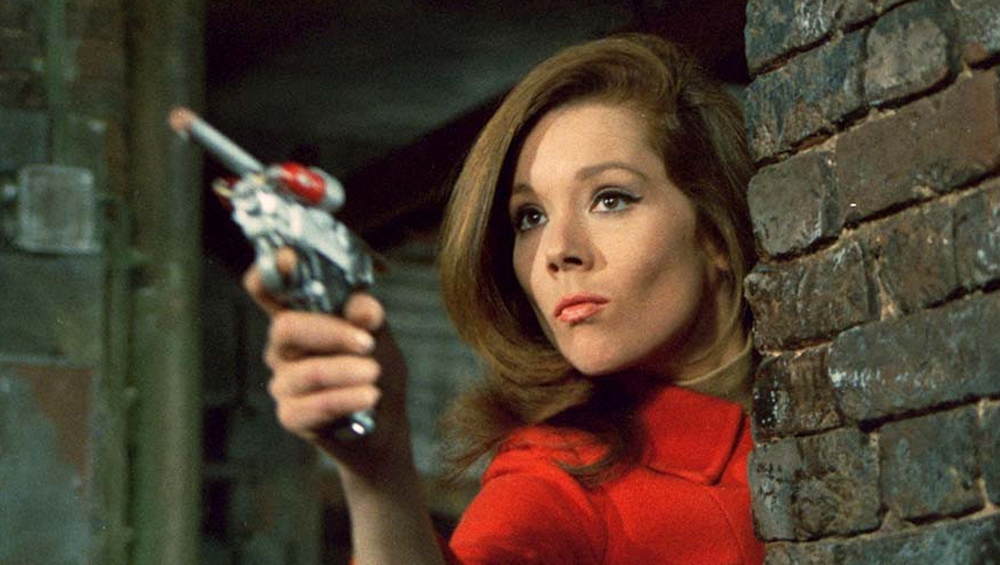
Diana Rigg
English actress Diana Rigg starred in The Avengers alongside Patrick McNee’s bowler-hatted John Steed. The pair were an impeccably dressed duo who fought villains and traded quips in a show whose mix of adventure and humor was enduringly influential. Rigg also starred in 1967 James Bond thriller On Her Majesty’s Secret Service as the only woman ever to marry Agent 007. She was 82 when she died on Sept. 10.
TV newsman Gene Mater, the former CBS News executive, longtime RTDNF treasurer and trustee and a veteran thought leader at the Freedom Forum and its Newseum, among other positions in a long, storied career, died Sept. 20 at 93.
Over the years, Tom Kennedy hosted a total of 14 game shows, including Name That Tune, Password Plus, Dr. I.Q. and You Don’t Say! He was 93 when he died Oct. 7.
Veteran TV executive Bob Shanks, helped create Good Morning America and 20/20 and had a role in the early careers of the Smothers Brothers, Barbra Streisand and many others. He died Oct. 12 at age 88.
Lee Kun-hee, who built Samsung into a global giant of smartphones, televisions and computer chips but was twice convicted — and, in a pattern that has become typical in South Korea, twice pardoned — for white-collar crimes committed along the way, died Oct. 25 at age 78.
Alex Trebek, Jeopardy host and TV personality, died Nov. 8. He was 80. Trebek revealed in March 2019 that he had been diagnosed with Stage 4 pancreatic cancer, but vowed to battle the disease. Trebek, who became Jeopardy’s host in 1984, was a master of the format, engaging in friendly banter with contestants, appearing genuinely pleased when they answered correctly and, at the same time, moving the game along in a brisk no-nonsense fashion whenever people struggled for answers. He won five Emmys as its host, including one last June, and received stars on both the Hollywood and Canadian walks of fame. In 2012, the show won a prestigious Peabody Award.
Herbert F. Solow, the TV production executive who helped make “Star Trek” and “Mission: Impossible” a reality, died Nov. 19. He was 89. Solow’s biggest contribution to television came when he was approached by Lucille Ball after her ex-husband and I Love Lucy co-star Desi Arnaz had sold his stake in Desilu Productions. Looking for new shows to help revive Desilu as a production force, she brought Solow on board and gave him total autonomy. Using his connections with Grant Tinker, Solow vouched for Gene Roddenberry and his TV show, Star Trek, helping launch one of the most legendary sci-fi franchises ever made.
Tim O’Brien, a broadcast journalist and lawyer who covered the Supreme Court for ABC-TV for 22 years and co-wrote a book on its notable capital cases, died Nov. 30. He was 77.
Richard King, a founding partner of King World Productions, the syndication powerhouse that was behind such programs as The Oprah Winfrey Show, Wheel of Fortune and Jeopardy, died Dec. 7. He was 79. He was the second-oldest of the six King children that received equal shares from their mother, Lucille, in the company founded by their father, Charles King, following his death in 1972. He served for years on the King World board but primarily left his brothers, Robert, Roger and Michael, to build the business.
Prolific television writer-producer William Link, co-creator of classic TV series including Columbo and Murder She Wrote among others, died Dec. 27. He was 87.
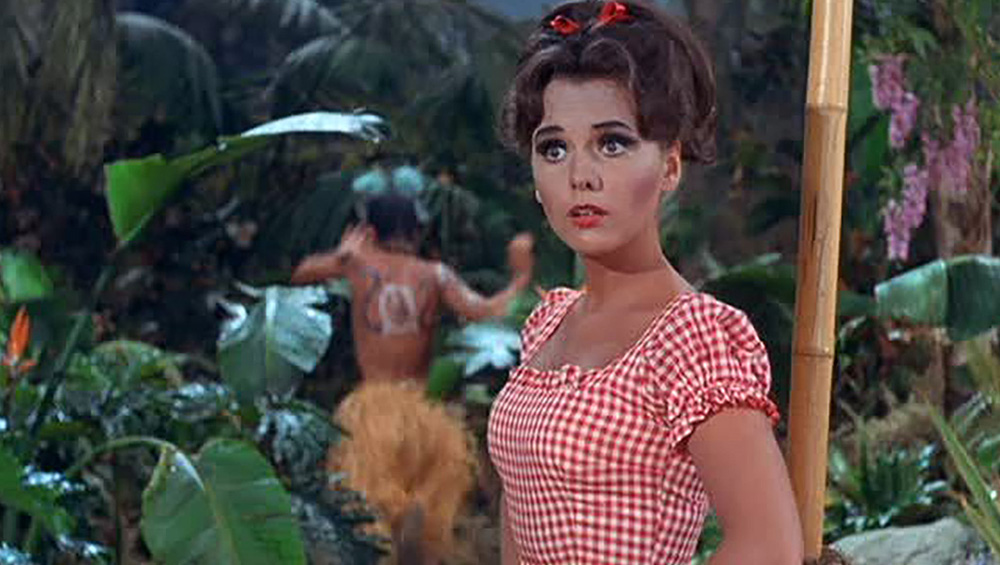 Dawn Wells, best known for playing the girl-next-door castaway Mary Ann on the iconic TV comedy series Gilligan’s Island, died Dec 30 from complications due to COVID-19. She was 82. Wells, who was Miss Nevada in the 1959 Miss America pageant, beat out 350 actresses for the role of Mary Ann.
Dawn Wells, best known for playing the girl-next-door castaway Mary Ann on the iconic TV comedy series Gilligan’s Island, died Dec 30 from complications due to COVID-19. She was 82. Wells, who was Miss Nevada in the 1959 Miss America pageant, beat out 350 actresses for the role of Mary Ann.

































Comments (0)